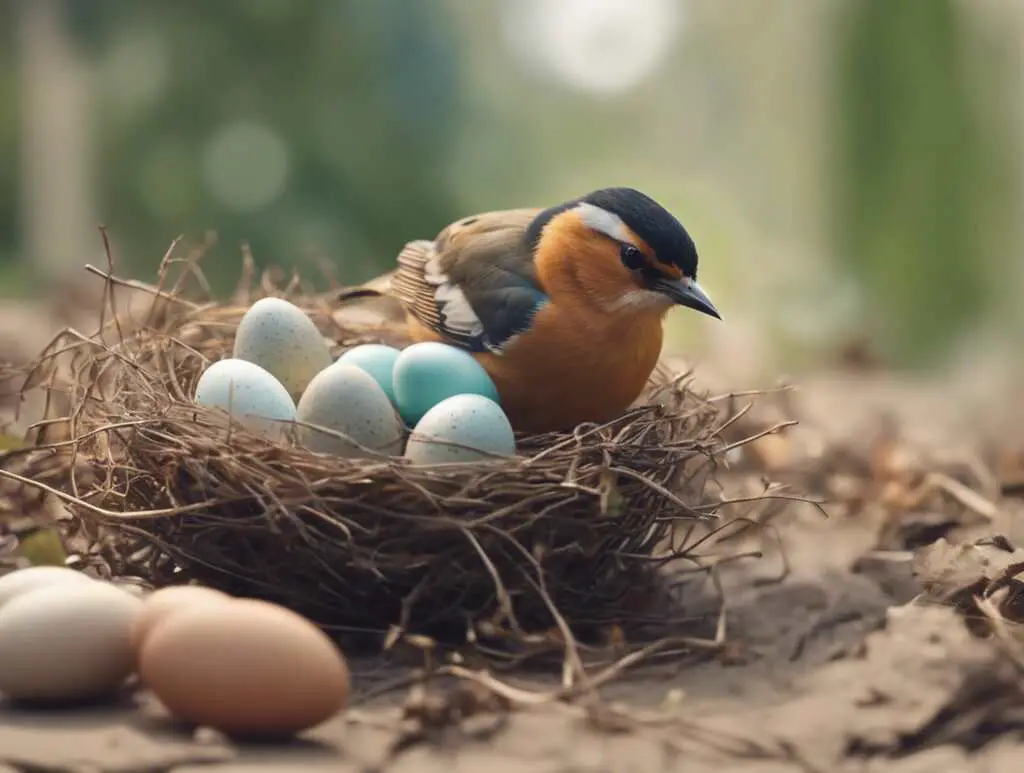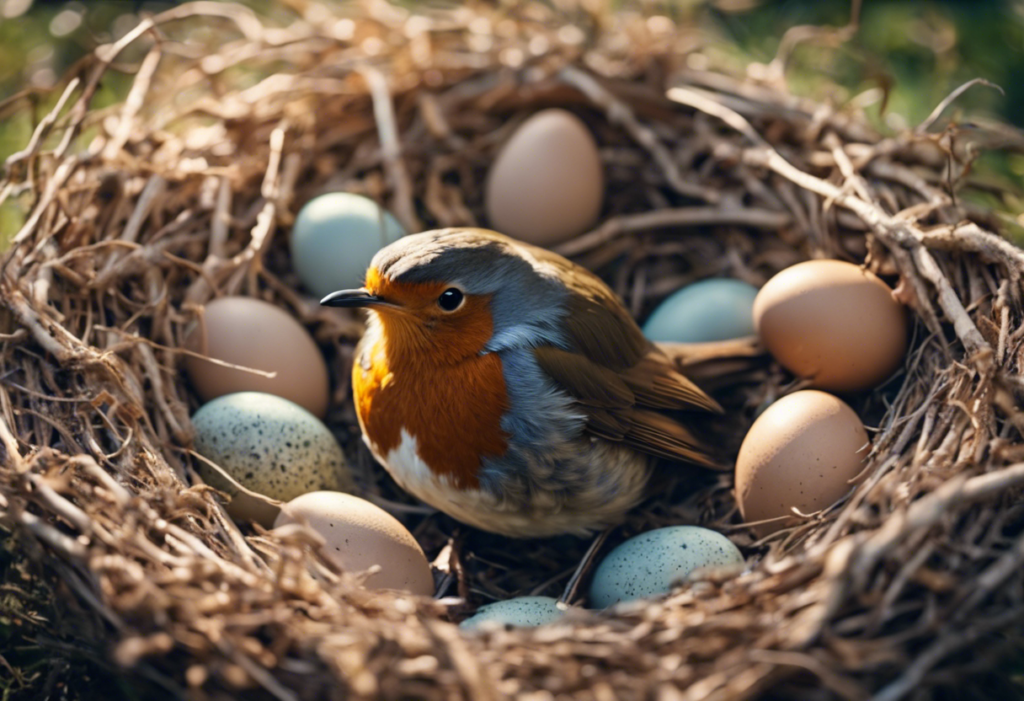Birds are fascinating creatures that exhibit a wide range of behaviors and characteristics. One common question that arises when discussing birds and their reproduction is whether they need a male partner to lay eggs. Let’s delve into this topic to understand the role of male birds in the egg-laying process.
Table of Contents
Do Birds Require a Male Partner to Lay Eggs?
Bird Reproduction: A Complex Process
Bird reproduction is a complex process that involves various stages, from courtship to nest-building, egg-laying, incubation, and chick-rearing. In most bird species, including both wild and domestic birds, a female bird is responsible for producing eggs. The female’s reproductive system is well-equipped to develop and lay eggs, typically with a yolk and a protective shell.
Female Birds: The Egg Producers
Female birds have a pair of ovaries where the eggs are formed. The ovary produces the ovum, or egg cell, which travels down the oviduct. As the egg moves through the oviduct, it undergoes fertilization if sperm from a male bird is present. However, in the absence of fertilization, the egg remains unfertilized but is still laid by the female bird.
Fertilization Process
In bird reproduction, fertilization occurs when the sperm from a male bird meets the egg in the oviduct. Once fertilization takes place, the egg begins to develop into an embryo. However, if the egg is not fertilized, it will still be laid by the female bird but will not result in offspring.
Male Birds’ Role
While male birds do not lay eggs, their role in the reproductive process is crucial for fertilization to occur. Male birds are responsible for providing sperm, which is necessary for fertilizing the female’s eggs. During courtship, male birds display various behaviors to attract a mate and engage in mating rituals to copulate with the female.
Bird Species with Different Reproductive Strategies
It is essential to note that not all bird species have the same reproductive strategies. In some bird species, such as certain types of waterfowl and game birds, males may have a more active role in nest-building and parental care. However, when it comes to the actual process of laying eggs, female birds are exclusively responsible for this task.
Female birds do not require a male partner to lay eggs. While male birds play a critical role in fertilization, it is the female’s reproductive system that is responsible for producing and laying eggs. Understanding the complexities of bird reproduction helps us appreciate the diverse strategies that birds have evolved to ensure the survival of their species.
The Influence of Mating Behavior on Avian Egg Production
Birds are fascinating creatures that vary in their mating behaviors and egg production strategies. One common question that arises is whether birds need a male to lay eggs. Understanding the influence of mating behavior on avian egg production provides valuable insights into the reproductive biology of birds.
Mating Behavior and Egg Production
Avian egg production is a complex process influenced by various factors, including mating behavior. In most bird species, including those with monogamous or polygamous mating systems, females do not require a male presence to lay eggs. The presence of a male bird is essential for fertilization, but it is not a requirement for the actual production of eggs. Female birds have the ability to lay unfertilized eggs, which will not develop into offspring.
Reproductive Strategies in Birds
Birds exhibit a wide range of reproductive strategies based on their ecological and environmental conditions. In species where males play a significant role in parental care, such as building nests or providing food, the presence of a male partner is crucial for successful reproduction. However, from a biological standpoint, female birds have the physiological capacity to lay eggs independently of male involvement.
Social Structure and Egg Laying
The social structure of bird species can also influence egg production. In species where females mate with multiple males, such as polyandrous birds, the role of males in egg fertilization becomes more pronounced. Despite this, female birds retain autonomy over the egg-laying process. The timing and frequency of egg laying are regulated by hormonal mechanisms within the female bird’s body.
Hormonal Control of Egg Production
The production of eggs in female birds is regulated by hormones, primarily estrogen and progesterone. These hormones control the maturation of ovarian follicles and the release of eggs from the ovary, known as ovulation. Mating behavior can influence hormone levels in female birds, affecting the timing of egg production. However, the ability to lay eggs is not contingent on the presence of a male partner.
Environmental Stimuli and Egg Laying
Environmental factors such as photoperiod, temperature, and food availability also play a crucial role in stimulating egg production in birds. Changes in daylight length can trigger the onset of breeding season and prompt female birds to start laying eggs. Adequate nutrition is essential for egg formation, as it requires significant energy and nutrient resources.
While mating behavior can influence the reproductive success of birds, female birds do not need a male to lay eggs. The intricate interplay between hormonal regulation, social structure, and environmental cues governs the process of egg production in avian species. Understanding these dynamics enhances our appreciation of the diverse strategies that birds employ to ensure the survival of their offspring.
Conclusion
The question of whether birds need a male partner to lay eggs is a fascinating topic that delves into the intricate world of avian reproduction. While some bird species do require a male counterpart to fertilize the eggs, there are also instances of female birds being able to lay unfertilized eggs on their own. The influence of mating behavior on avian egg production cannot be understated, as it plays a crucial role in ensuring the survival and continuity of bird populations.
It is important to recognize that the need for a male partner in egg-laying varies among different bird species. Birds such as chickens and ducks require mating to fertilize their eggs, which is essential for the development of viable embryos. In these cases, male birds play a significant role in the reproductive process, contributing genetic material that is crucial for the health and survival of the offspring. Without the presence of a male partner, these birds would not be able to produce offspring naturally.
On the other hand, some bird species, such as certain types of parrots and domesticated budgies, are capable of laying eggs without the presence of a male bird. These unfertilized eggs are known as “parthenogenetic” eggs and contain only the genetic material of the female bird. While these eggs cannot develop into chicks, they demonstrate the remarkable adaptability and reproductive capabilities of female birds in the absence of a male partner.
The influence of mating behavior on avian egg production extends beyond the simple act of fertilization. The presence of a male bird can have a significant impact on the timing and frequency of egg-laying in female birds. Mating rituals and behaviors, such as courtship displays and mating dances, can stimulate hormonal changes in female birds that regulate their reproductive cycles. This, in turn, can affect the number of eggs laid by a female bird and the overall success of breeding efforts.
Furthermore, the presence of a male partner can also provide benefits to female birds in terms of nest protection and food provisioning. Male birds often assist in the construction of nests, the incubation of eggs, and the feeding of chicks after hatching. This cooperative behavior between male and female partners is essential for the successful rearing of offspring in many bird species.
While the need for a male partner in egg-laying varies among bird species, the influence of mating behavior on avian egg production is undeniable. Whether through fertilization or the stimulation of reproductive cycles, male birds play a crucial role in the reproductive success of many avian species. By understanding the intricacies of avian reproduction and mating behavior, we can gain a deeper appreciation for the diversity and complexity of the natural world around us.



